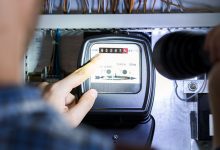The NSW government says it will launch a new energy efficiency scheme to reward households and businesses for cutting their energy use during peak periods, and shifting load to other times of the day, particularly when solar is dominating supply.
NSW energy minister Matt Kean said the scheme – due to come into effect at the end of 2022 – would be one of the first of its kind introduced globally, and was expected to help energy consumers save $1.2 billion in energy costs over 18 years to 2040.
The NSW Peak Demand Reduction Scheme scheme will target forms of energy use that are not time critical and can be shifted into periods when system demand is low, or potentially turned off for short periods.
Incentives will be provided to install products, such as household batteries or smart pool pumps, to help reduce demand during peak periods.
“By reducing peak demand we can supply power to everyone who needs it, when they need it, at a lower cost,” Kean said.
“We are also investing $25 million in the scheme to support the development of emerging technologies and software that allow households and businesses to use power when it is cheap and abundant.”
Servicing peak demand can be a significant driver of higher electricity prices. Generally, wholesale electricity prices are much higher during peak demand periods, and network infrastructure often needs to be built to handle peak capacity, even if this only occurs for a handful of times during the year.
Through the scheme, energy users will be offered discounts when installing energy efficient products that are able to operate more during ‘off-peak’ periods when electricity is generally cheaper and demand on the energy system is lower.
“If all the backyard pool pumps and filters across NSW were used outside of peak periods, we could save up to 450MW – that’s more than the capacity of a generating unit at the Liddell Power Station,” Kean added.
Kean said that the state government’s Energy Saving Scheme would also be expanded to extend eligibility to a larger range of fuel-switching activities.
This is set to provide new financial incentives for households to install solar and heat-pump hot water systems and for businesses to shift some of its fossil fuel consumption to renewable energy alternatives.










